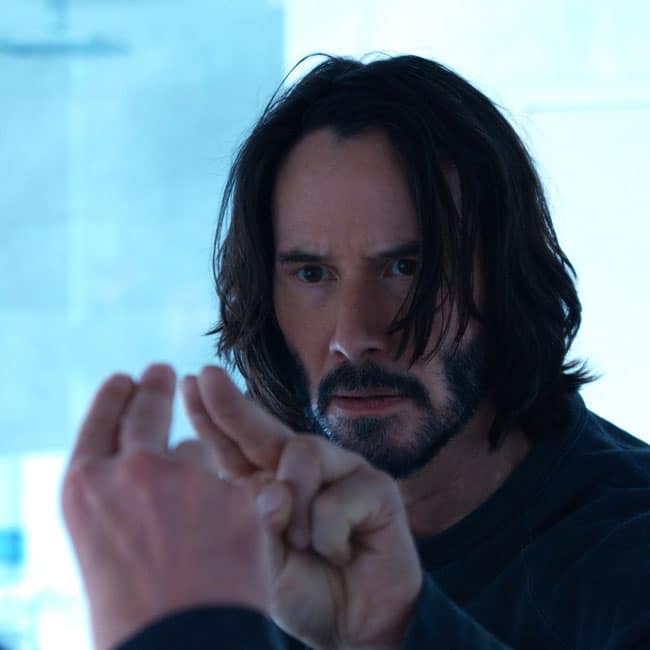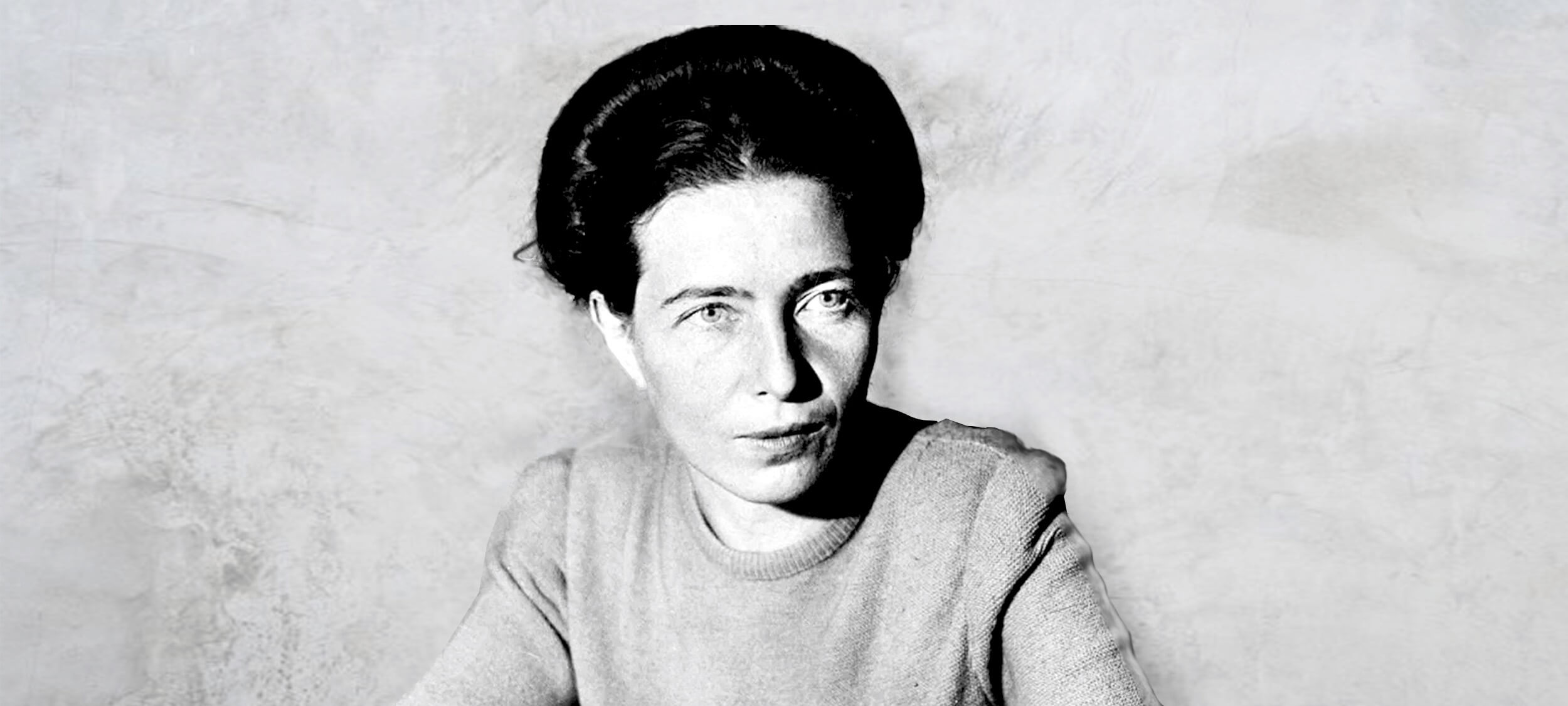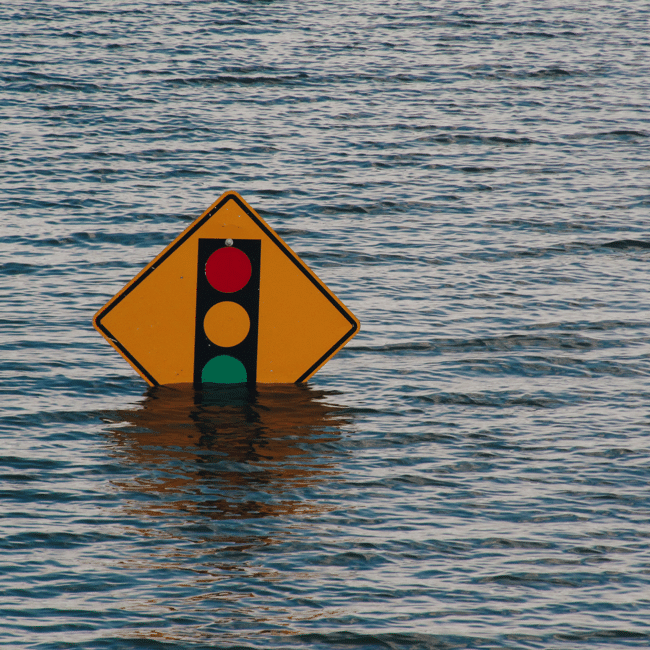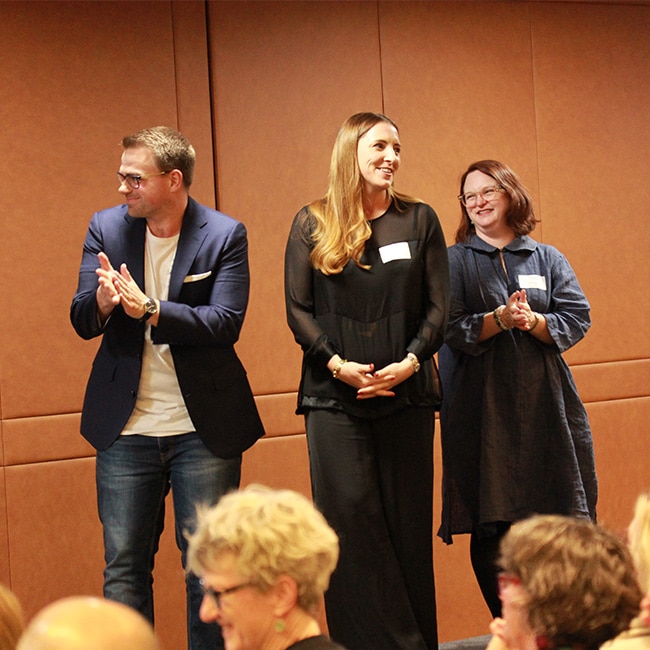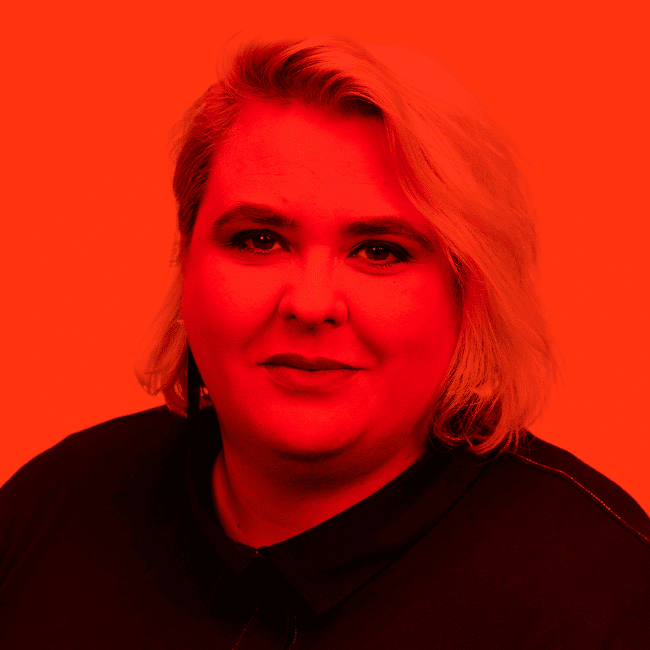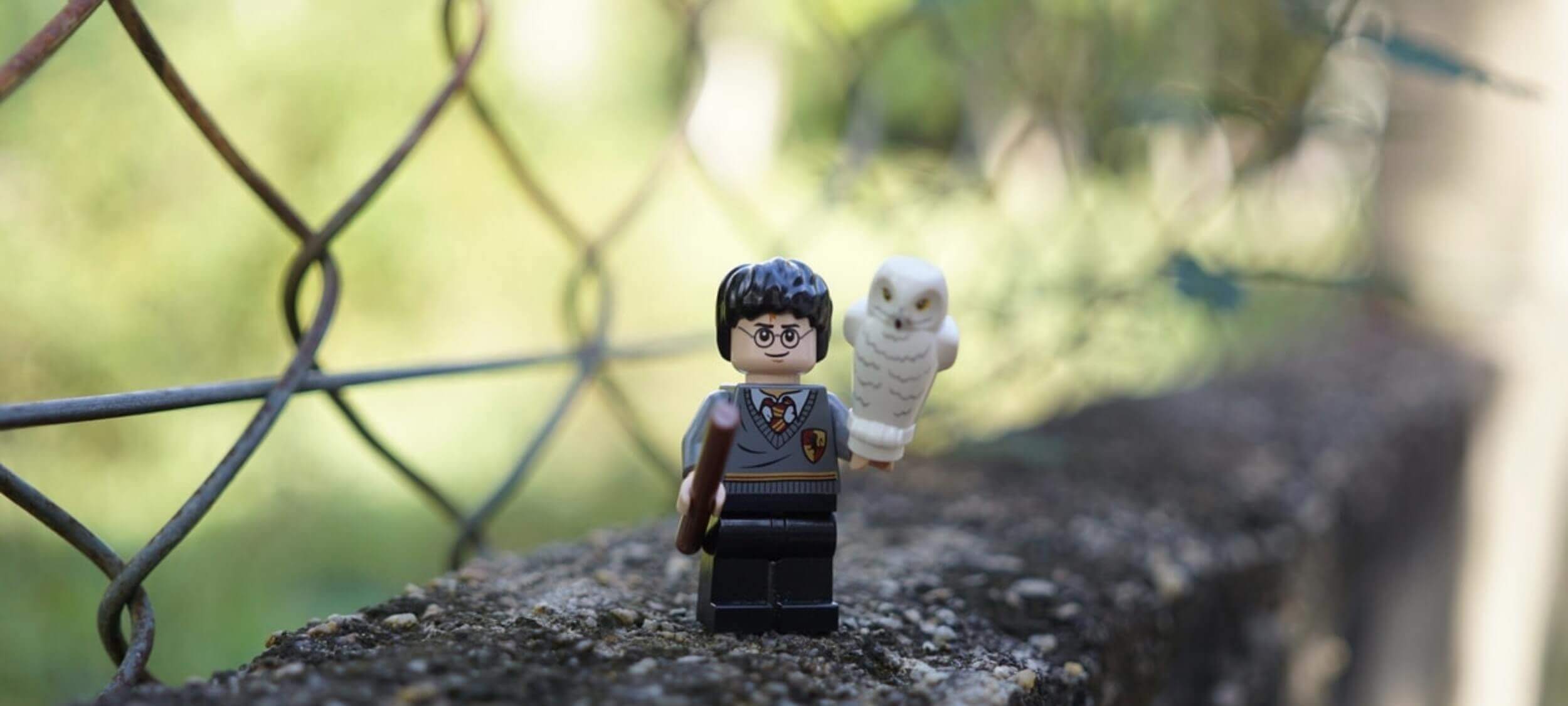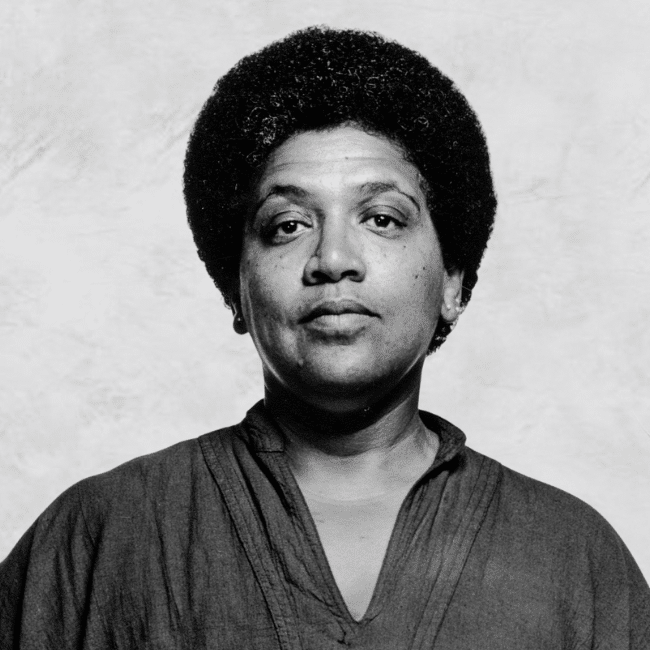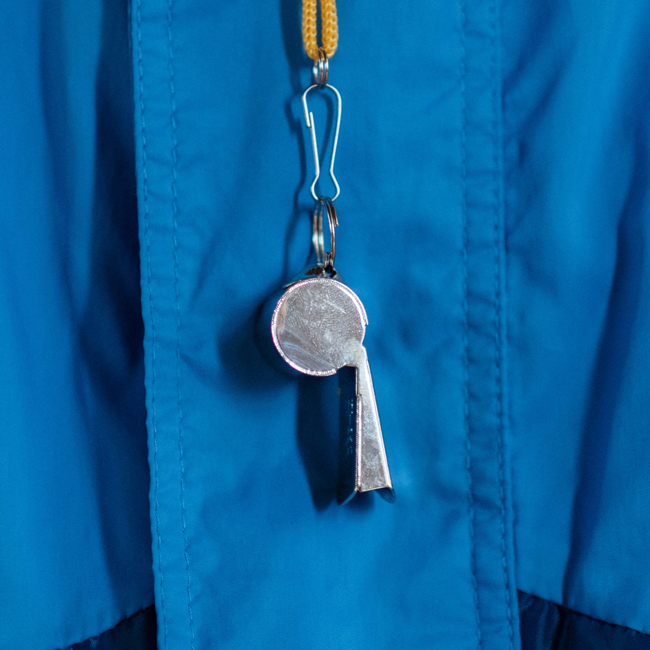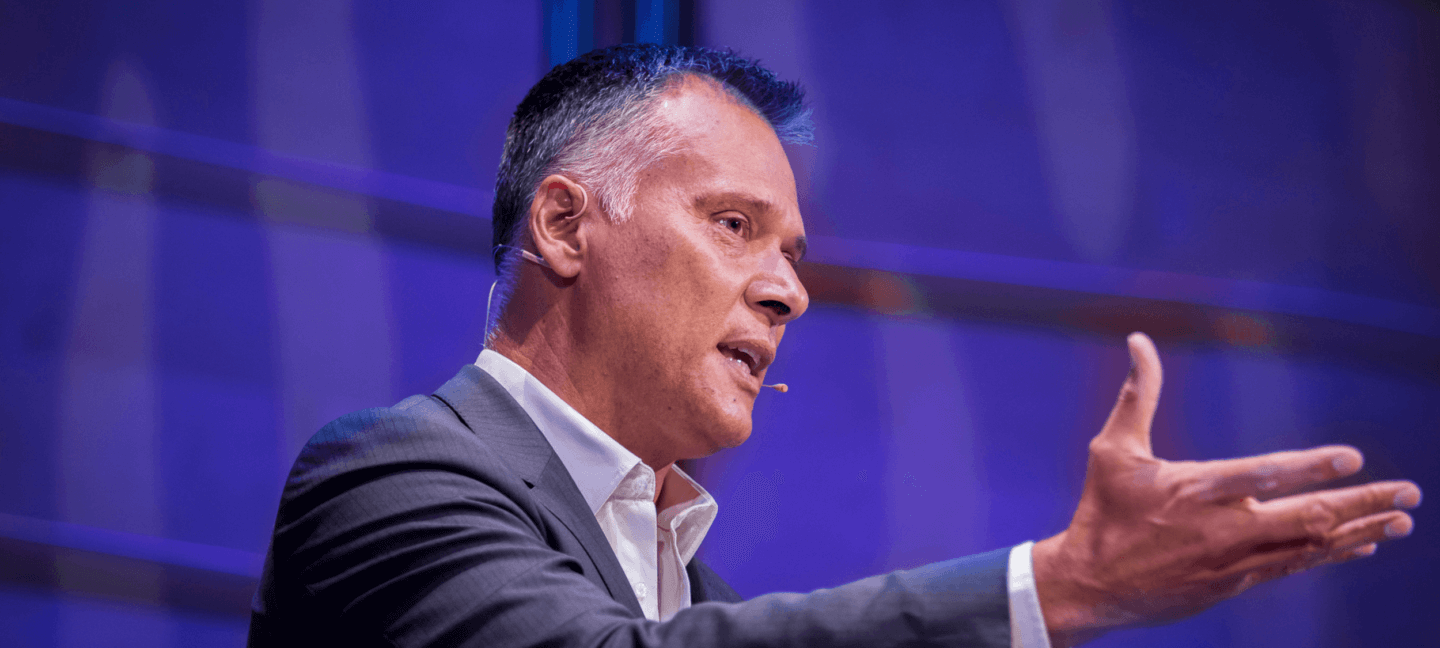Big Thinker: Epicurus
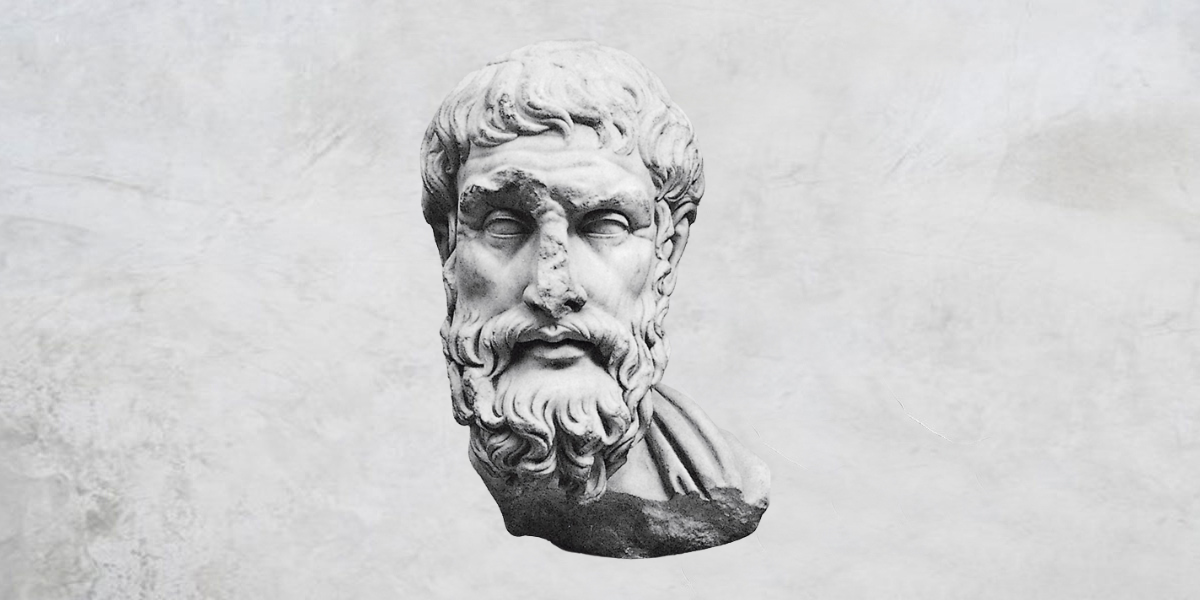
Epicurus (341–270 BCE) was an ancient Greek philosopher and founder of the highly influential school of philosophy, Epicureanism.
In a time dominated by Platonism, Epicurus established a competing school in Athens known as “the Garden”. Many of his teachings were direct contradictions of the teachings of Plato, other schools of thought and generally accepted ideas in areas like theology and politics. He also flouted norms of the time by openly allowing women and slaves to join and participate in the school.
Though he strongly insisted otherwise, dubbing himself “self-taught”, records indicate Epicurus was greatly influenced by many philosophers of and before his time such as Democritus, Pyrrho and Plato.
Theology and Ethics
Two significant departures from the popular ancient Greek thought involved Epicurus’ ideas about theology. In general, he was critical of popular religion, though in a much more restrained way than his later followers.
One departure was his thoughts on the afterlife. Epicurus believed that there was no afterlife, and that any belief in it, especially the idea that the afterlife could involve punishment and suffering, was a harmful superstition that prevented people from living a good life.
“Accustom thyself to believe that death is nothing to us, for good and evil imply sentience, and death is the privation of all sentience; . . . Death, therefore, the most awful of evils, is nothing to us, seeing that, when we are, death is not come, and, when death is come, we are not.”
From Letter to Menoeceus
Another departure was his thoughts on the gods, and specifically their involvement in human affairs, also known as divine providence. Unlike most, Epicurus believed in the gods while simultaneously believing that they were completely removed from the mortal realm and uninvolved in human affairs.
The Epicurean view of the gods was that they were perfect beings, and involvement in anything outside their perfection would tarnish that perfection. The view denies that they exhibit any control over humans or the world, and that they instead function mainly as aspirational figures – beings to admire and emulate.
Both of these departures from popular ancient Greek religion came from his unique hedonistic philosophy. Epicurus believed that the ultimate purpose of philosophy was to achieve, and help others to achieve, certain states of being that characterise the eudaimonic (happy, flourishing) life.
Specifically, he thought that eudaimonia was attained through internal peace (ataraxia), an absence of pain (aponia) and a life of friendship.
This was the basis of his hedonism – unique in that he defined pleasure as an absence of suffering and so had a far greater focus on moderation than what is typically associated with hedonism.
In fact, Epicurus was disapproving of excessiveness generally:
“…the pleasant life is produced not by a string of drinking bouts and revelries, nor by the enjoyment of boys and women, nor by fish and the other items on an expensive menu, but by sober reasoning.”
These ideas informed his theological thoughts. He believed that a belief in the afterlife was superstitious and bad because it was most often a source of fear. Instead of acting morally to avoid the risk of punishment in the afterlife, which causes suffering in the current life, Epicurus taught that we should instead act morally because we will inevitably suffer from guilt or the fear of being discovered if we do not.
Likewise, he taught that while the gods had no interest in the affairs of humans, we should still act morally and kindly because those who do will have no fear, leading to ataraxia.
“…it is not possible to live pleasurably without living sensibly and nobly and justly.”
Pleasure and Desire
As part of his ethical teachings, Epicurus noted different types of pleasures and desires that prevent us from achieving a life free from suffering and trouble.
He was particularly focused on desire because he saw it, like fear, as a ubiquitous source of suffering. He taught that there are three kinds of desires: two natural, and one empty. Natural desires can be necessary (like food or shelter) or unnecessary (like luxury food or recreational sex). Empty desires on the other hand correspond to no genuine, natural need and often can never be satisfied (wealth, fame, immortality), leading to continuous pain of unfulfilled desire.
Unfortunately, like many Hellenistic philosophers, the vast majority of Epicurus’ writings have remained undiscovered, instead pulled together largely through the writings of contemporaries, followers and later historians. Despite this, his ideas have resurfaced throughout the centuries since and influenced the thinking of ancient and modern philosophers alike.

Ethics in your inbox.
Get the latest inspiration, intelligence, events & more.
By signing up you agree to our privacy policy
You might be interested in…
Opinion + Analysis
Politics + Human Rights, Relationships, Society + Culture
You won’t be able to tell whether Depp or Heard are lying by watching their faces
Opinion + Analysis
Relationships, Society + Culture
Nothing But A Brain: The Philosophy Of The Matrix: Resurrections
Opinion + Analysis
Health + Wellbeing, Society + Culture
Alpha dogs and the toughness trap: How we can redefine modern masculinity
Big thinker
Relationships, Society + Culture
Big Thinker: Simone de Beauvoir
BY The Ethics Centre
The Ethics Centre is a not-for-profit organisation developing innovative programs, services and experiences, designed to bring ethics to the centre of professional and personal life.
7 thinkers improving our ethical understanding of the environment

7 thinkers improving our ethical understanding of the environment
Big thinkerClimate + Environment
BY Cameryn Cass 5 JUN 2024
Despite centuries of advocacy urging us to consider our actions, the urgent problem of climate change and conservation of our earth is one that often feels the most insurmountable.
In celebration of World Environmental Day, these seven key thinkers and activists from across history have contributed to our ethical understanding of the environment and how we can lessen our impact.
Aldo Leopold (1887-1948)

Aldo Leopold was a conservationist, forester, philosopher, and educator who dedicated his life to coexisting with nature and learning from it, with many considering him to be the father of American wildlife ecology.
His non-fiction book, A Sand County Almanac, calls for the development of a land ethic, as conservation is unachievable so long as resources are controlled by economic interests. He wrote, “a land ethic changes the role of Homo sapiens from conqueror of the land-community to plain member and citizen of it.” By including land in our understanding of community, it no longer is property; instead, it becomes inherently valuable and, in turn, worthy of protection and respect. “We can be ethical only in relation to something we can see, feel, understand, love, or otherwise have faith in,” he wrote.
Leopold additionally stressed the need to evaluate and update the content of our conservation education. He said it’s not enough to join a few organisations, follow the law, and trust the government will do the rest. “In our attempt to make conservation easy, we have made it trivial.”
Seyyed Hossein Nasr (1933-present)

Nasr, an internationally celebrated thinker from Iran, is, at present, a professor of Islamic Studies at George Washington University. He looks at the natural world through a religious lens, thus becoming the founder of environmentalism in the Muslim world. He calls Islam a “green religion,” as it’s easy for followers to sympathise with the natural world, since “the Qur’an addresses not only human beings, but also the cosmos. All creatures participate in Islam.” In Islam, all living things are equally valuable, equally deserving of life, equally valid. Nasr highlights how “we human beings cannot be happy without the happiness of the rest of creation. We have killed enough, massacred enough of God’s other creatures.”
He juxtaposes Islamic values with Christian ones, and how the latter’s “most devout followers don’t show much interest in the environment.” In all the verses of the New Testament, he points out, there’s not one mention of nature. “To be modern is to destroy the world of nature. That’s the great tragedy of it, and we should try to find out why.”
Naomi Klein (1970-present)

As a Canadian journalist, filmmaker, New York Times best-selling author and professor of climate justice, Naomi Klein’s commitment to activism spans many mediums, across borders. She sees our world’s current state as one major, interconnected problem: Climate change isn’t separate from medical crises which aren’t separate from political crises, and so on. In her eyes, it’s all connected and it all rests on the initial sin of stealing lands from Indigenous people.
In her Festival of Dangerous Ideas 2015 talk, Capitalism and the Climate, she emphasised the Pope’s idea of a “throwaway culture.” It’s what’s allowed generations of Australians, Canadians, and Americans alike to take from Native people, and it’s the same concept that’s degrading and destroying our planet. “We extract and do not replenish and wonder where the fish have disappeared. And why the soil requires evermore inputs, like phosphates, to stay fertile.” Klein calls for the creation of a “culture of caretaking in which no one and nowhere is thrown away. In which the inherent value of people and all life is foundational.”
Tyson Yunkaporta (present)

Aboriginal people have lived in Australia for over 65,000 years – far longer than any other humans have anywhere else on the planet. Tyson Yunkaporta, an Aboriginal scholar and author, believes that we stand to resolve a lot of our current environmental problems by turning to their ancient practices, or, at the very least, considering them. Aboriginal “patterns still flow with the movement of the earth.” They remain connected to the planet, he said, living in harmony and coexisting with the natural world in ways non-Indigenous people do not.
Yunkaporta thus encourages readers to question Western thinking and approach problems with an Aboriginal lens instead. As he wrote in his book, Sand Talk, we ought “to live and work in accordance with a natural order, rather than against it.”
Pythagoras (570 BC-495 BC)

Though Pythagoras is typically remembered for his contribution to mathematics (you might remember his famed Pythagorean Theorem from high school math class) he was actually better known for his beliefs on reincarnation and diet in his day. In fact, he was the first modern vegetarian in the West and is regarded as the father of ethical vegetarianism.
While the actual impact of cutting out meat from one’s diet is often disputed, individuals can have impact by lessening their own ecological footprint. By cutting out meat, it can be argued that one stands to dramatically reduce the resources – like land, water, and oil – required to sustain their diet. Pythagoras far predated these ecological footprint considerations; instead, he grounded his vegetarian beliefs in reincarnation. By killing animals and eating their meat, he said, we run the risk of eating our companions. “Meat is for beasts to feed on… what a wicked thing it is for flesh to be the tomb of flesh… for one live creature to continue living through one live creature’s death.”
Vandana Shiva (1952-present)

Vandana Shiva is an ecofeminist, physicist, ecologist, activist, editor, and author known for her steadfast commitment to work in environmental conservation, specifically agriculture. Famously, she opposed Asia’s Green Revolution, which, while ramping up food production in less-developed countries, the heavy use of pesticides harmed native seed diversity and traditional agricultural practices.
To try and do her part to give back, in 1982, Shiva founded the Research Foundation for Science, Technology, and Ecology to develop sustainable agricultural practices. In her Festival of Dangerous Ideas talk in 2013, Growth = Poverty, she condemns GDP and growth, drawing on experiences from life in India. Gross Domestic Product, she says, doesn’t account for things like pollution in the rivers, and if it did, India and China would have negative scores. Instead, it creates a false standard of living and, in doing so, “it has perpetuated a model of generating non-sustainability, inequality, and a deep violence within society and within the self.”
Kongqiu (551 BC-479 BC)

Better known as Confucius, this ancient Chinese philosopher’s teachings are, to this day, the bedrock of East Asian culture.
Confucius believed that all life has qi, which is essentially life force that nurtures humans and nature alike. In essence, qi supports the idea that humans and nature are isogenous, of the same origin and interconnected. In accordance with this perspective, Confucius stressed that humans ought to be kind to the land to achieve harmony and balance.
Present day scholars look to this ancient Chinese wisdom as a piece to solving the puzzle that is climate change. If humans adopted the idea that we are not separate from nature and instead an extension of it, as Confucius said, then perhaps we’d see this destruction to the land as destruction to ourselves and finally change our unsustainable ways.

Ethics in your inbox.
Get the latest inspiration, intelligence, events & more.
By signing up you agree to our privacy policy
You might be interested in…
Opinion + Analysis
Climate + Environment, Politics + Human Rights
Is it time to curb immigration in Australia?
Opinion + Analysis
Business + Leadership, Climate + Environment, Relationships
ESG is not just about ticking boxes, it’s about earning the public’s trust
Explainer
Business + Leadership, Climate + Environment
Ethics Explainer: Ownership
Opinion + Analysis
Climate + Environment, Politics + Human Rights
Who is to blame? Moral responsibility and the case for reparations
BY Cameryn Cass
Cameryn Cass is a curious writer and an editor-in-training who studied at Michigan State University. Her primary focus is environmental storytelling, as she deeply loves the natural world and intends to use her voice to defend it. Outside of work, she loves to hike, rock climb and practice yoga.
Big Thinker: Philippa Foot

Philippa Foot (1920-2010) is one of the founders of contemporary virtue ethics, reviving the dominant Aristotelian ethics in the 20th century. She introduced a genre of decision problems in philosophy as part of the analysis in debates around abortion and the doctrine of double effect.
Philippa Foot was born in England in 1920. While receiving no formal education throughout her childhood, she obtained a place at Somerville College, one of the two women’s colleges at Oxford. After receiving a degree in 1942 in politics, philosophy and economics, she briefly worked as an economist for the British Government. Besides this, she spent her life at Oxford as a lecturer, tutor, and fellow, interspersed with visiting professorships to various American colleges, including Cornell, MIT, City University of New York and University of California Los Angeles.
Virtue ethics
In the philosophical world, Philippa Foot is best known for her work repopularising virtue ethics in the 20th century. Virtue ethics defines good actions as ones that embody virtuous character traits, like courage, loyalty, or wisdom. This is distinct from deontological ethical theories which encourage us to think about the action itself and its consequences or purpose instead of the kind of person who is doing the action.
“What I believe is that there are a whole set of concepts that apply to living things and only to living things, considered in their own right. These would include, for instance, function, welfare, flourishing, interests, the good of something. And I think that all these concepts are a cluster. They belong together.”
The doctrine of double effect
Imagine you are the driver of a runaway trolley that is barrelling down the tracks. You have the option to do nothing, and let five people die, or the option to switch the tracks and kill one person.
This is Philippa Foot’s famous trolley problem. This thought experiment encourages us to think about the moral differences between actively causing death (e.g. pulling a lever to get the trolley to change tracks) and passively or indirectly causing death (doing nothing, allowing the trolley to kill five people. Utilitarians might argue that five deaths is far less desirable than one death, but many people instinctively feel that actively causing a death has a different moral weight than doing nothing.
Perhaps Foot’s most influential paper is The Problem of Abortion and the Doctrine of Double Effect, published in 1967. Here, she explains what is called the Doctrine of the Double Effect, which explains why some very bad actions (like killing) might be permissible because of their potentially positive outcomes. The trolley problem is one example of the doctrine of double effect, but she also uses various other cases.
“The words “double effect” refer to the two effects that an action may produce: the one aimed at, and the one foreseen but in no way desired. By “the doctrine of the double effect” I mean the thesis that it is sometimes permissible to bring about by oblique intention what one may not directly intend.”
For example, what if one person needed a large dose of a rare medicine to save their life, but that same amount of medicine could save the lives of five others who each needed less? Would we think that the “oblique intention” of a nurse who administers the medicine to one person instead of the five people is justified?
Foot finds that it would be wise to save the five people by giving them each a one-fifth dose of the medicine. However, she encourages us to interrogate why this feels different from the organ donor case, where we save five people who need organ transplants by sacrificing one person.
“My conclusion is that the distinction between direct and oblique intention plays only a quite subsidiary role in determining what we say in these cases, while the distinction between avoiding injury and bringing aid is very important indeed.”
When the trolley problem is taken to its logical conclusion, these fallacies become even more obvious. As John Hacker-Wright writes, the trolley problem “raises the question of why it seems permissible to steer a trolley aimed at five people toward one person while it seems impermissible to do something such as killing one healthy man to use his organs to save five people who will otherwise die.”
Foot has also contributed to moral philosophy with her writing on determinism and free will, reasons for action, goodness and choice, and discussions of moral beliefs and moral arguments.

Ethics in your inbox.
Get the latest inspiration, intelligence, events & more.
By signing up you agree to our privacy policy
You might be interested in…
Opinion + Analysis
Society + Culture
The power of community to bring change
Opinion + Analysis
Science + Technology, Society + Culture
AI is not the real enemy of artists
Opinion + Analysis
Society + Culture
8 questions with FODI Festival Director, Danielle Harvey
Opinion + Analysis
Relationships, Society + Culture
What Harry Potter teaches you about ethics
BY The Ethics Centre
The Ethics Centre is a not-for-profit organisation developing innovative programs, services and experiences, designed to bring ethics to the centre of professional and personal life.
Big Thinker: Audre Lorde
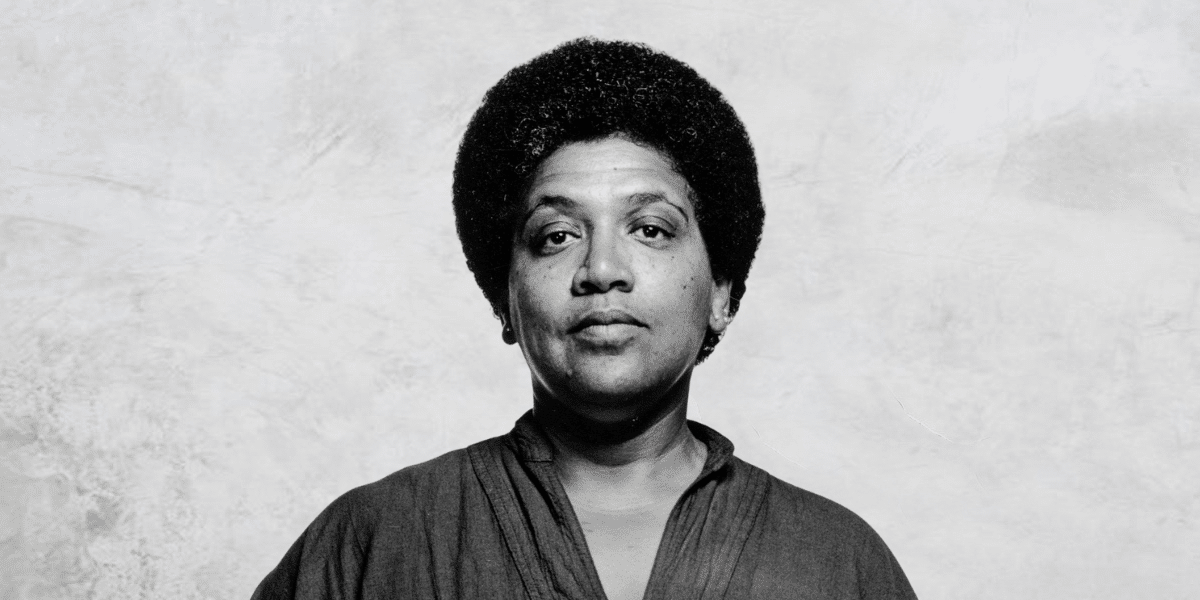
Big Thinker: Audre Lorde
Big thinkerPolitics + Human RightsSociety + Culture
BY The Ethics Centre 11 JAN 2024
Professionally a poet, professor and philosopher, Audre Lorde (1934-1992) also proudly carried the titles of intersectional feminist, civil rights activist, mother, socialist, “Black, lesbian [and] warrior.” She is also the woman behind the popular manifesto “the master’s tools will never dismantle the master’s house.”
Born Audrey Geraldine Lorde in New York City, to Frederic and Linda Belmar Lorde, on the 18th of February 1934, Lorde fell in love with poetry as a form of expression at a young age.
“I used to communicate through poetry,” she recalled in conversation with Claudia Tate for Black Women Writers at Work. “When I couldn’t find the poems to express the things I was feeling, that’s what started me writing poetry,” she said. Lorde was thirteen.
Alongside her education at Hunter High School in New York, and working on the school’s literary magazine, she published her first piece of literature in the 1951 April issue of Seventeen Magazine. She earned a Bachelor of Arts from Hunter College in 1959, preceding a master’s degree in library science in 1961 from Columbia University. Following that, Lorde worked as a librarian for public schools in New York City from 1961 to 1968, working her way to head librarian of Manhattan’s Town School. In 1980, Lorde and her friend, a fellow writer and activist, created a publishing house, ‘Kitchen Table: Women of Color Press.’ Throughout these years, Lorde was prolific and wrote some of her most recognised volumes of poetry. A full discography of her work can be found at the end of this article.
Authorship and legacy
Expression of self and personal philosophy through literature became a cornerstone of Audre Lorde’s life and one of her greatest contributions to the discourse on discrimination and equality today.
A proud feminist, Lorde’s authorship strived to offer an authentic depiction of the female experience; the good, the bad and the complex. She felt academic discourse on feminism was white and heterosexual centric, lacking consideration of the lived realities of Black and queer women. Thus, she put the stories of these women at the centre of her literature.
Lorde’s philosophy focussed particularly on intersectional discrimination and academic discourse’s inability to accommodate it. She revered differences amongst humans, arguing true equality can only be achieved through celebrating rather than homogenising our different identities.
Third Wave Feminism
Lorde was a prominent member of the women’s and LGBTQIA+ rights movements during the second wave of feminism. As a woman with many of her own labels, Lorde used her lived experience and literary expertise to shine a light on the experience and voices of other women with multiple signifiers. She implored society to confront racist feminism, the nuances of the Black female experience and the cognitive dissonance between educating yourself on feminism whilst not bearing witness to the experiences of all women, – particularly women of colour whose intellectual labour and contributions to such academia have been so routinely overlooked. Thus, helping kickstart the third wave of feminism, also spearheaded by another big thinker, Kimberle Crenshaw.
Through her words, Lorde aimed to acknowledge and capture the pain as well as the joy she felt as an openly queer Black woman. This bare-all intent and celebration of individuality is particularly felt in her work, The Cancer Journals and her subsequent public encouragement of other breast cancer survivors to wear their mastectomies on their chest, rather than accept prosthesis purely for aesthetic motivations. “It is that very difference that I wish to affirm… I lived it, I survived it, and wish to share that strength with other women.”
Philosophy on difference
Lorde was an advocate for difference amongst human beings. For her, difference was the key to eradicating discrimination and moving forward in unity. As we constantly reevaluate what it means to be human, what we hold dear and the ethical pillars we lean on to guide us, Lorde philosophised that it was vital we harness rather than fear that which separates us from our friends, peers and enemies. Rather than homogenising humanity, the future of equality relies on our ability to relate across differences. Finding community is not about conforming, it is about accepting. It must be an act of opening up, not of shutting down.
Lorde examined difference particularly through an intersectional feminist lens. Identifying and subverting the conditioning of women to view their differences as causes for separation and self-judgement.
What we need first, however, is courage. To have our beliefs and perspectives stretched and challenged as we begin the journey of embracing that which makes us different from those around us.
Intersectionality
Lorde was acutely aware of and vocal about the pressure on marginalised people to divide their identities in order to fight for recognition of their discrimination. Academia was constructed to examine, debate and interrogate ways of being. At the time, it was established by white men, and thus contributions to this school of thought were limited to the lived realities and perspectives of these men. As a result, the notion of a human norm came about, and this norm was white, male, heterosexual and often, but not always, wealthy, educated and upper class. Every deviation from this ideal was considered a handicap and treated as such.
In her speech at the New York University Institute for the Humanities, where she debuted her admonishment: “the master’s tools will never dismantle the master’s house,” Lorde cautioned people of colour and other marginalised demographics against the pressure to conform to the limited criteria of ‘acceptable’ laid out by discrimination discourse in white academia, in order to have their needs met. She argued fighting for equality within a system with the notion of a human ideal will only lead to disappointment. True and deeply entrenched equality can only happen through an entire paradigm shift; the unravelling of a human norm in the first place.

Ethics in your inbox.
Get the latest inspiration, intelligence, events & more.
By signing up you agree to our privacy policy
You might be interested in…
Opinion + Analysis
Politics + Human Rights
Time for Morrison’s ‘quiet Australians’ to roar
Explainer
Politics + Human Rights, Relationships
Ethics Explainer: Critical Race Theory
Opinion + Analysis
Business + Leadership, Health + Wellbeing, Society + Culture
Ethical concerns in sport: How to solve the crisis
Opinion + Analysis
Politics + Human Rights, Relationships, Society + Culture
In the face of such generosity, how can racism still exist?
BY The Ethics Centre
The Ethics Centre is a not-for-profit organisation developing innovative programs, services and experiences, designed to bring ethics to the centre of professional and personal life.
Big Thinker: Karl Marx

Karl Marx (1818-1883) was a philosopher, economist, and revolutionary thinker whose criticisms of capitalism and breakdowns of class struggle continue to influence contemporary thought about economic inequality and the worth of individual labour.
He was not only a prominent figure in the world of philosophy but also a key player in economic and political theory. Marx’s life and work were deeply intertwined with the tumultuous historical backdrop of the 19th century, marked by the Industrial Revolution and the rise of capitalism.
Born in Trier, Prussia (now in Germany), Marx began with a focus on law and philosophy at the University of Bonn and later at the University of Berlin. During his time in Berlin, he encountered the ideas of G.W.F. Hegel, whose methods significantly influenced Marx’s own philosophical approach.
In collaboration with Friedrich Engels, Marx developed and refined his ideas, culminating in some of the most influential works in the history of political philosophy. For example, his infamous The Communist Manifesto (1848) and Das Kapital (1867, 1885, 1894).
Historical materialism and class struggle
One of Marx’s central ideas was historical materialism, a theory that analyses the evolution of societies through the lens of economic systems. According to Marx, the structure of a society is primarily determined by its mode of production: the ways commodities and services are produced and distributed, and the social relations that affect these functions. In capitalist societies, the means of production are privately owned, leading to a class-based social structure separating the owners and the workers.
Marx’s analysis of class struggle underscores the ethical imperative of addressing economic inequality. He argued that under capitalism, the bourgeoisie (owners of the means of production) exploit the proletariat (the working class) for their own profit. This exploitation, he claims, is the engine that drives the capitalist system, where workers are paid less than the value of their labour while the bourgeoisie reap the profits. This exploitation also results in alienation, where workers are estranged from the full effects of their labour and, Marx argues, even from their own humanity.
Marx’s arguments call for a reevaluation of the inherent fairness of such a system. He questions the morality of a society where wealth and power are concentrated in the hands of a few while the masses toil in poverty. This is an ethical challenge that continues to resonate in contemporary discussions about income inequality and social justice.
Marx’s critique challenges us to consider whether a society that values profit and efficiency over the well-being and fulfillment of its members is ethically justifiable.
To address this concern, Marx envisioned a classless society, where the means of production would be collectively owned. This transition, he believed, would eliminate the inherent exploitation of capitalism and lead to a more just and equitable society. While the practical realisation of this vision has proven challenging, it remains a foundational ethical ideal for some, emphasising the need to confront economic disparities for the sake of human dignity and fairness.
Critique of capitalism and commodification
Marx’s critique of capitalism extended beyond its class divisions. He also examined the profound impact of capitalism on human relationships and the commodification of virtually everything, including labour, under this system. For Marx, capitalism reduced individuals to mere commodities, bought and sold in the labour market.
Marx’s critique of commodification highlights the importance of valuing individuals beyond their economic contributions. He argued that in a capitalist society, individuals are often reduced to their economic worth, which can erode their sense of self-worth and dignity. Addressing this ethical concern calls for recognising the intrinsic value of every person and fostering functions in societies that prioritise human well-being over profit.
The communist vision
Marx’s ultimate vision was communism, a classless society where resources would be shared collectively. In such a society, the state as we know it would wither away, and individuals would contribute to the common good according to their abilities and receive according to their needs.
This communist vision raises questions about the ethics of property and ownership. It challenges us to rethink the distribution of resources in society and consider alternative models that prioritise equity and communal well-being. While achieving a truly communist society might be complex or even out of reach, the aspiration of creating a world where everyone’s needs are met and individuals contribute to the best of their abilities is still a general ethical ideal many people intuitively strive for.
Despite this, Marx’s ideas have faced much criticism. Many believe that a classless society with a centralised power risks authoritarianism, Marx’s economic planning lacked detail, communism goes against human nature of self-interest and competition, and historical and contemporary communist systems face large practical challenges.
In spite of, and sometimes because of, these challenges, Marx’s ideas continue to spark ethical discussions about economic inequality, commodification, and the nature of human relationships in contemporary society. His legacy serves as a reminder of the enduring importance of grappling with questions of justice, equality, and human dignity in our ever-evolving social and economic landscapes.
Ethics in your inbox.
Get the latest inspiration, intelligence, events & more.
By signing up you agree to our privacy policy
You might be interested in…
Opinion + Analysis
Business + Leadership
Despite codes of conduct, unethical behaviour happens: why bother?
Opinion + Analysis
Business + Leadership
Sylvie Barbier and Rufus Pollock on failure and fostering a wiser culture
Opinion + Analysis
Business + Leadership, Relationships
Corporate whistleblowing: Balancing moral courage with moral responsibility
Opinion + Analysis
Business + Leadership
How cost cutting can come back to bite you
BY The Ethics Centre
The Ethics Centre is a not-for-profit organisation developing innovative programs, services and experiences, designed to bring ethics to the centre of professional and personal life.
Big Thinker: Judith Jarvis Thomson

Big Thinker: Judith Jarvis Thomson
Big thinkerPolitics + Human Rights
BY The Ethics Centre 11 JUL 2023
Judith Jarvis Thomson (1929-2020) is one of the most influential ethicists and metaphysicians of the 20th century. She’s known for changing the conversation around abortion, as well as modernising what we now know as the trolley problem.
Thomson was born in New York City on October 4th, 1929. Her mother was Catholic of Czech heritage and her father was Jewish, who both met at a socialist summer camp. While her parents were religious, they didn’t impose their beliefs on her.
At the age of 14, Thomson converted to Judaism, after her mother died and her father remarried a Jewish woman two years later. As an adult, she wasn’t particularly religious but she did describe herself publicly as “feel[ing] concern for Israel and for the future of the Jewish people.”
In 1950, Thomson graduated from Barnard College with a Bachelor of Arts (BA), majoring in philosophy, and then received a second BA in philosophy from Cambridge University in England in 1952. She then went on to receive her Masters in philosophy from Cambridge in 1956 and her PhD in philosophy from Columbia University in New York in 1959.
Violinists, trolleys and philosophical work
Even though she had received her PhD from Columbia, the philosophy department wouldn’t keep her as a professor as they didn’t hire women. In 1962, she began working as an assistant professor at Barnard college, though she later moved to Boston University and then MIT with her husband, James Thomson, for the majority of her career.
Thomson is most famous for her thought experiments, especially the violinist case and the trolley problem. In 1971, Thomson published her book A Defense of Abortion, which presented a new kind of argument for why abortions are permissible during a time of heightened debate in the US as a result of the second wave feminist movement. Arguments that defended a woman’s right to an abortion circulated feminist publications and eventually led to the Supreme Court ruling in favour of Roe v. Wade (1973).
“Opponents of abortion commonly spend most of their time establishing that the foetus is a person, and hardly any time explaining the step from there to the impermissibility of abortion.” – Judith Jarvis Thomson
The famous violinist case asks us to imagine if it is permissible to “unplug” ourselves from a famous violinist, even if it is only for nine months and being plugged in is the only thing keeping them alive. As Thomas Nagel said, “she expresses very clearly the essentially negative character of the right to life, which is that it’s a right not to be killed unjustly, and not a right to be provided with everything necessary for life.” To this day, the violinist case is taught in classrooms and recognised as one of the most influential thought experiments arguing for the permissibility of abortion.
Thomson is famous for another famous thought experiment, the trolley problem. In her 1976 paper “Killing, Letting Die and the Trolley Problem,” Judith Jarvis Thomson articulates a famous thought experiment, first imagined by Philippa Foot, that encourages us to think about the moral relevance of killing people, as opposed to letting people die by doing nothing to save them.
In the trolley problem thought experiment, a runaway trolley will kill five innocent people unless someone pulls a lever. If the lever is pulled, the trolley will divert onto a different track and only one person will die. As an extension to Foot’s argument, Thomson asks us to think if there is something different about pushing a large man off a bridge, thereby killing him, to prevent five people from dying from the runaway trolley. Why does it feel different to pull a lever rather than push a person? Both have the same potential outcomes and distinguish between killing a person and letting a person die.
In the end, what Thomson finds is that oftentimes, the action as well as the outcome are morally relevant in our decision making process.
Legacy
Thomson’s extensive philosophical career hasn’t gone unnoticed. In 2012, she was awarded the American Philosophical Association’s prestigious Quinn Prize for her “service to philosophy and philosophers.” In 2015, she was awarded an honorary doctorate by the University of Cambridge, and then in 2016 she was awarded another honorary doctorate from Harvard.
Thomson continues to inspire women in philosophy. As one of her colleagues, Sally Haslanger, says: “she entered the field when only a tiny number of women even considered pursuing a career in philosophy and proved beyond doubt that a woman could meet the highest standards of philosophical excellence … She is the atomic ice-breaker for women in philosophy.”
Ethics in your inbox.
Get the latest inspiration, intelligence, events & more.
By signing up you agree to our privacy policy
You might be interested in…
Opinion + Analysis
Politics + Human Rights, Society + Culture
What comes after Stan Grant’s speech?
Opinion + Analysis
Politics + Human Rights
A note on Anti-Semitism
Opinion + Analysis
Politics + Human Rights
Big Brother is coming to a school near you
Explainer
Politics + Human Rights, Relationships
Ethics Explainer: Autonomy
BY The Ethics Centre
The Ethics Centre is a not-for-profit organisation developing innovative programs, services and experiences, designed to bring ethics to the centre of professional and personal life.
Big Thinker: Ralph Waldo Emerson

Big Thinker: Ralph Waldo Emerson
Big thinkerClimate + EnvironmentRelationships
BY The Ethics Centre 28 APR 2023
Committed to individualism and credited as the father of transcendentalism, Ralph Waldo Emerson (1803-1882) was an American essayist, lecturer, philosopher and poet.
Initially on a path to follow his father’s footsteps and serve in the Christian ministry, Emerson attended Harvard’s Divinity School to become a pastor. But as time went on and he delved deeper into his religious studies, he realised an unignorable sense of detachment and divergence from the traditional religious values he was immersed in. And so he left the Second Unitarian Church and decided to forge his own path.
“To be yourself in a world that is constantly trying to make you something else is the greatest accomplishment.”
Emerson’s influential career began with public lectures in Boston that would inspire some of his most renowned essays and ideas. His lectures centred on human culture, English literature, biography and philosophy. He was known for popularising the major movement known as transcendentalism.
The Father of Transcendentalism
“Transcendental” was initially coined by philosopher Immanuel Kant in his theory of transcendental idealism. It’s a theory of perception that holds space and time, along with our five senses, are all subjective experiences and don’t exist outside of the human experience.
Even though Kant coined the term, Emerson is regarded as the father of transcendentalism.
Emerson’s transcendentalism, which became one of America’s first literature and philosophical movements, holds that we ought to be doubtful of knowledge we get from our five senses or even logic and reason; the only trustworthy source of knowledge manifests itself in our personal intuition and self-revelations.
In one of his first lectures, “The Uses of Natural History”, Emerson planted the initial seed for the movement when he explained science as something innately human. He emphasised nature to be an extension of one’s self: “the whole of Nature is a metaphor or image of the human mind.”
His book-length 1836 essay “Nature” is what officially and explicitly defined transcendentalism.
In essence, transcendentalists believe nature is paramount: all their ideals are rooted in the natural world. They believe all things are inherently good, humans and nature alike. In much the same way, transcendentalists see the divinity – the “God” – in everything and everyone. As Emerson wrote, “I am part or particle of God.” Transcendentalists also believe in the human potential for achieving greatness and genius.
Emerson is responsible for introducing a number of people to metaphysical concepts for the first time. A group he helped found in the late 1830’s called the Transcendental Club had dangerous conversations that critiqued societal institutions of the time, such as organised religion and slavery. Its members included prominent thinkers of the time, like Henry David Thoreau and Margaret Fuller, and allowed a space for transcendentalist ideas to grow.
Self-Reliance
As the title of one of his most famous essays, “Self-Reliance” describes one of his principal philosophies: relying solely on ourselves. Emerson’s transcendentalism has been equated to romantic individualism because of his emphasis on the self. For understanding and greatness, Emerson believed we ought only to rely on ourselves and trust our intuition. In fact, he believed the only thing separating the common person from “greatness” is that the “greats” have the gall to admit precisely what they’re feeling when they feel it. As humans, much of our experiences and emotions are shared, and Emerson saw beauty in such commonalities.
At the same time, he cited conformity as a major barrier to achieving greatness. He thought we should be comfortable and proud of being distinctly ourselves. He praised individuality and the pursuit of achieving “an original relation to the universe” by tuning inwards.
The key to unlocking genius is listening to what Emerson called our “creative insight”. He felt such insight was decidedly divine, God’s way of individually speaking to us. This insight is necessary for anyone to accomplish anything meaningful, and so Emerson encouraged everyone to trust their own creative insight over societal ones. Listening to our divinity, our creative insight, yields a life lived authentically.
“It is easy in the world to live after the world’s opinion; it is easy in solitude to live after our own; but the great man is he who in the midst of the crowd keeps with perfect sweetness the independence of solitude.”
It’s these transcendentalist ideologies that would eventually inspire philosopher Henry David Thoreau to reject society and go into the woods in order “to live deliberately and front only the essential facts of life”. And that same line of thinking is what inspired Christopher McCandless, an infamous American adventurer, to abandon family and escape to Fairbanks, Alaska in the 1990s. His story of living in the solitude of wilderness was later popularised in the film and novel Into the Wild.
Although some find wisdom and beauty in Emerson’s fierce admiration of solitude and complete rejection of groupthink, others see privilege in his ideals. Not everyone is able to exercise free will; not everyone can afford to stray from the norm and escape their social circumstances. And so to some, his ideas are lofty and unattainable, less you have the power of class and money on your side.
Beyond privilege, others see selfishness in his philosophies. By tuning inwards and considering only our own needs and desires, what is lost? What might we sacrifice when we neglect those around us? When we disregard even our loved ones? And yet, Emerson never said anything definitively:
“But it is the fault of our own rhetoric that we cannot strongly state one fact without seeming to belie some other. I hold our actual knowledge is very cheap.”
Ethics in your inbox.
Get the latest inspiration, intelligence, events & more.
By signing up you agree to our privacy policy
You might be interested in…
Opinion + Analysis
Relationships
Will I, won’t I? How to sort out a large inheritance
Opinion + Analysis
Relationships, Science + Technology
The ethics of exploration: We cannot discover what we cannot see
Opinion + Analysis
Relationships
We can help older Australians by asking them for help
Opinion + Analysis
Health + Wellbeing, Relationships, Science + Technology
Hallucinations that help: Psychedelics, psychiatry, and freedom from the self
BY The Ethics Centre
The Ethics Centre is a not-for-profit organisation developing innovative programs, services and experiences, designed to bring ethics to the centre of professional and personal life.
Five Australian female thinkers who have impacted our world

Five Australian female thinkers who have impacted our world
Big thinkerRelationshipsSociety + Culture
BY The Ethics Centre 8 MAR 2023
In a world where some women still struggle to have their voices heard, there are many female thinkers whose contributions throughout history have impacted our thinking today. This International Women’s Day, we’re celebrating five influential Australian philosophers, activists, academics and thinkers who have shaped our ethical landscape and beyond.
Kate Manne
Kate Manne (1983-present) is an Australian philosopher best known for her feminist, moral and social philosophies, and her work around misogyny and masculine entitlement. Notably, instead of thinking of misogyny as hatred for women, Manne redefines the word and focuses on its systematic nature, specifically in how law enforcement polices women and girls to uphold gender norms.
To illustrate masculine entitlement, Manne coined the term “himpathy”, which explains “the disproportionate … sympathy extended to a male perpetrator over his … less privileged, female targets in cases of sexual assault, harassment, and other misogynistic behaviour.” She took a deep dive into this idea in her 2020 book Entitled: How Male Privilege Hurts Women and critiqued Justice Kavanaugh’s appointment to the US Supreme Court, despite allegations of sexual assault, as “himpathy” in action.
Marcia Langton
Marcia Langton (1951-present) is considered one of Australia’s top academics, anthropologists and geographers. As the great–great–granddaughter of survivors of the frontier massacres and a Yiman person, Langton uses her influential platform to advocate for Aboriginal and Torres Strait Islander people. When her great aunt Celia Smith, an organiser of the Federal Council for the Advancement of Aborigines and Torres Strait Islanders, convinced her to work with the council in 1967, Langton was launched into her outspoken career of Aboriginal activism.
Since, she’s worked on vital pieces of research and legislation impacting Indigenous people and has held the Foundation Chair of Australian Indigenous Studies at University of Melbourne since 2000. More recently, she’s worked on the Voice to Parliament that would recognise First Peoples in the Constitution, permitting them “to have a say in the legislation that affects their lives.” To her, upholding Indigenous knowledge and rights goes beyond environmental preservation: It’s cultural preservation.
Veena Sahajwalla
Veena Sahajwalla (undisclosed-present) is an Australian scientist, inventor and professor. Named one of Australia’s 100 most influential engineers in 2015 and one of the 100 most innovative in 2016, Sahajwalla is putting New South Wales on a path to a net zero carbon, circular economy. Nicknamed “Queen of Waste”, she’s worked to repurpose everything from old clothes to beer bottles and abandoned mattresses. Growing up in Mumbai, India, she was introduced to the art of recycling through waste-pickers.
Her most famous invention, “Green Steel”, replaces coking coal in steel production with old, shredded tyres. The process is much less carbon-intensive and prevents 2 million tyres from hitting the landfill each year. This, in addition to her numerous other achievements – such as being councillor on the Australian Climate Council and opening the world’s first e-waste microfactory on the University of New South Wales’s campus – led to her being named Australian of the Year in 2022

Germaine Greer
Germaine Greer (1939-present) is a writer and regarded one of the major voices of the radical feminism movement in the latter half of the 20th century. Born in Melbourne, her 1970 book, The Female Eunuch, made her a household name where she argued the expectation for women to be feminine – in the clothes they wear, in marriage, in having a nuclear family – is what represses them. And so she calls for liberation, for revolution, because this repression cultivates political inaction.
Since then, she’s written several other books on feminism, literature and the environment. Of all her ideas and claims, she holds that freedom is the most dangerous, though critics say otherwise. Some of Greer’s views of have created controversy, including her views on gender binaries and expressions, rape and the #MeToo movement. While her audacious language, beliefs and controversy have cultivated furore at times, Greer remains a prominent participant in intellectual discourse and debate.
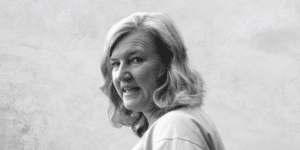
Val Plumwood
Val Plumwood (1939-2008) was an Australian philosopher, activist and ecofeminist. Her work focused on anthropocentrism and discouraging the idea that humans are superior to and separate from nature. This “standpoint of mastery”, as she called it, legitimised the “othering” of the natural world, which included women, indigenous and non-humans.
She experienced a major paradigm shift that coloured her opposition to anthropocentrism after she was attacked by a crocodile while canoeing alone at Kakadu National Park. She couldn’t believe such a thing was happening to her, a human. She went from being top of the food chain to part of it, having “no more significance than any other edible being.” To Plumwood, the flawed mindset of only human life mattering is the root of our planet’s degradation. She proposed nurturing the natural world for nature’s own good instead of our own, famously questioning, “Is there a need for a new, an environmental, ethic – an ethic of nature?”
Ethics in your inbox.
Get the latest inspiration, intelligence, events & more.
By signing up you agree to our privacy policy
You might be interested in…
Opinion + Analysis
Society + Culture
Read before you think: 10 dangerous books for FODI22
Opinion + Analysis
Business + Leadership, Society + Culture
The Ethics Institute: Helping Australia realise its full potential
Opinion + Analysis
Business + Leadership, Society + Culture
A win for The Ethics Centre
Explainer
Relationships, Society + Culture
Ethics Explainer: Beauty
BY The Ethics Centre
The Ethics Centre is a not-for-profit organisation developing innovative programs, services and experiences, designed to bring ethics to the centre of professional and personal life.
9 LGBTQIA+ big thinkers you should know about

9 LGBTQIA+ big thinkers you should know about
Big thinkerRelationshipsSociety + Culture
BY The Ethics Centre 15 FEB 2023
In celebration of Sydney World Pride and Sydney Gay and Lesbian Mardi Gras, we’ve profiled nine notable thinkers who have contributed to our understanding of gender, sexuality and identity in some way. Whether navigating such spaces themselves or contributing to prominent research in the field, these figures have propelled public awareness of LGBTQIA+ issues in a meaningful way.
Michael Foucault (he/him)
Michael Foucault (1926-1984) was a daring, outspoken French philosopher, historian and psychologist. Much of his work was concerned with power and the random, coincidental ways in which big ideas and movements manifest in public consciousness. He explored the idea of sexuality in great extent and the modern fixation to define it and attribute sexual relations to an identity. To him, such definitions and labels effectively “other” parts of the population whose sexual behaviours are seen as deviant from the norm, even though evidence of same sex relations is present throughout human history.
Foucault thoroughly explored these ideas in his study, The History of Sexuality. He did not believe sexuality could be definitively defined – and any attempt to define it, in his eyes, constrained the mobility of human sexuality, which he believed ought to be fluid. Foucault’s provocative ideas and the content of The History of Sexuality laid the foundation for what Teresa de Lauretis would later call “queer theory”.
Judith Butler (they/them)
Judith Butler (1954-present) is an American activist whose writings and philosophies colour their commitment to radical equality. They are best known for writing Gender Trouble: Feminism and the Subversion of Identity, which is widely considered a founding text of queer theory. In the world-renowned book, Butler rejects the stance that gender equals biology, instead viewing gender as a product of behaviours and self-expression. To them, gender is produced by performance and is the root of their idea of “gender performativity”.
To eliminate any confusion on its definition, Butler explains that “We are formed through gender assignment, gender norms and expectations. But we’re not trapped. We can work and play with them [and] open-up spaces that feel better or more real for us.”
Audre Lorde (she/her)
Professionally a poet, professor and philosopher, Audre Lorde (1934-1992) also proudly carried the titles of intersectional feminist, civil rights activist, mother, socialist, “Black, lesbian [and] warrior.” She is also the woman behind the popular manifesto “the master’s tools will never dismantle the master’s house.”
Lorde’s self-expression and personal philosophy has became one of the greatest contributions to the discourse on discrimination and equality today. By offering an authentic depiction of the female, queer and Black experience, she portrayed the good, the bad and the complex. She felt academic discourse on feminism was white and heterosexual centric, lacking consideration of the lived realities so she put the stories of these women at the centre of her literature. An advocate for difference amongst human beings, Lorde’s difference was key to helping eradicate discrimination and moving forward in unity.
Raewyn Connell (she/her)
Raewyn Connell (1944-present) is an Australian sociologist. Born in Sydney, she approaches her research work with what she calls “southern theory”. Essentially, this perspective gives space to the global south’s backgrounds, which are often overshadowed by northern narratives. Connell was initially recognised for her research on class dynamics, exploring how class and power are inextricably linked and thus defined class as a social structure. This social framework propelled Connell into the realm of sexuality, which she also viewed as a social structure. Exploring how class influences and shapes gender, she understood gender as multi-dimensional and subject to change; something far beyond a mere aspect of our social identity.
In Masculinities – one of her most famous works — Connell coined the term “hegemonic masculinity”, which is the most dominant and socially celebrated version of a man. Though best known for her work in male studies, she explained that “my theoretical concern was the gender order as a whole; masculinity was one piece of the jigsaw”. Additionally, she’s written about her experience as a trans woman, gender equality, poverty, AIDS prevention and education.
Dennis Altman (he/him)
Dennis Altman (1943-present) is an Australian queer thinker and professor of politics at La Trobe University. His 1971 book, Homosexual: Oppression and Liberation, kickstarted his outstanding career that eventually led The Bulletin to name him one of the 100 most influential Australians. He primarily pondered the differences between radical gay activists who question heteronormative frameworks versus the tamer gay equality activists who demanded space in such frameworks. As time went on, Altman’s predictions of the normalisation of homosexuality laid out in his 1971 book proved correct. And though such advancements are certainly ones to celebrate, part of Altman mourns the radical roots of gay liberation.
For his complete support of gay rights, his opposition of same sex marriage might come as a surprise, but not if you consider the fact that he opposes marriage of any kind. In rejecting “the assumption that there is only one way of living a life”, Altman never married his partner of twenty years. He vehemently stands by the “equal right not to marry” and refuses to seek permission from the state and religious bodies that don’t want to sanction same sex relationships.
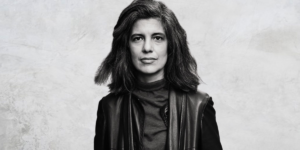
Susan Sontag (she/her)
Susan Sontag (1933-2004) was a relentless and prolific writer, philosopher, playwright, filmmaker and activist. She obsessively pursued the truth and had the courage to express it, no matter how unpalatable. To her, “All understanding begins with our not accepting the world as it appears.” Sontag’s first notable work, Notes on “Camp”, is what propelled her into the public eye, especially after it appeared in Time Magazine. Best known for detailing modern culture and aesthetics, her work expanded definitions of the word “camp” – for instance, using it to define works of art when they fail at being serious.
Her extremely publicised divorce from sociologist and cultural critic Philip Rieff in 1957 forced her into the public eye and involuntarily exposed her sexuality. Rather famously, after that event, she never formally came out as lesbian or bisexual. On this, in an interview with the New Yorker, she said, “That I have had girlfriends as well as boyfriends is what? Is something I never thought I was supposed to say since it seems to me the most natural thing in the world.”

Natalie Wynn (she/her)
Natalie Wynn (1988-present) is an American, Baltimore-based YouTube personality whose work aims to educate via theatrical entertainment and humour. In a play-like fashion, Wynn plays different characters and wears complex costumes to try and voice all sides of an issue, from which the audience can draw their own conclusions. On her channel, ContraPoints (like counterarguments), she tries to make people think; and beyond that, she wants them to question why they think that way in the first place. Wynn questions, “What matters more: The way things are or the way things look?”
As a transgender woman, many of her videos tackle trans experience, sexuality and gender roles. Wynn principally tries to depolarise conversations that typically divide people and humanise those who are questioning their own identity and sexuality. She claims that “in a free society, different people will have lots of different sexual lifestyles,” and she uses her platform to give space to such lifestyles.
Masha Gessen (they/them)
Masha Gessen (1967-present) is an unreserved, influential journalist, activist and author. Born in Russia, they relocated to America to realise greater sexual freedoms. Called “Russia’s leading LGBT rights activist” they have candidly discussed living in Russia as an openly gay person at the time – where homosexual propaganda is illegal and removing children from same sex households is possible.
Gessen has brought international queer issues into academic discourse to better understand the anti-queer movement, like that in Russia. They’ve blatantly critiqued Russia’s president Vladimir Putin since he was first elected and holds that former American president Donald Trump is “worse” than him. Gessen continues to expose injustices and Russia’s rise of LGBTQIA+ hate crimes in the wake of the state’s homophobia.
Alok Vaid-Menon (they/them)
Alok Vaid-Menon (they/them) is an internationally acclaimed writer, comedian, poet, and public speaker whose work explores themes of trauma, belonging, and the human condition. Their 2020 book Beyond the Gender Binary has been described as a “clarion call for a new approach to gender in the 21st century.”
Their approach to fundamental and often violent clashes with peace and compassion can feel radically hopeful. Vaid-Menon says “I’m fighting for trans ordinariness… I want to be able to walk down the street wearing what I want without it having to be an event.”
Ethics in your inbox.
Get the latest inspiration, intelligence, events & more.
By signing up you agree to our privacy policy
You might be interested in…
READ
Society + Culture
10 dangerous reads for FODI24
Opinion + Analysis
Business + Leadership, Relationships
Corporate whistleblowing: Balancing moral courage with moral responsibility
Opinion + Analysis
Society + Culture, Politics + Human Rights
Taking the cynicism out of criticism: Why media needs real critique
Opinion + Analysis
Health + Wellbeing, Politics + Human Rights, Relationships
Ethics in a time of coronavirus
BY The Ethics Centre
The Ethics Centre is a not-for-profit organisation developing innovative programs, services and experiences, designed to bring ethics to the centre of professional and personal life.
Big Thinker: Kimberlé Crenshaw
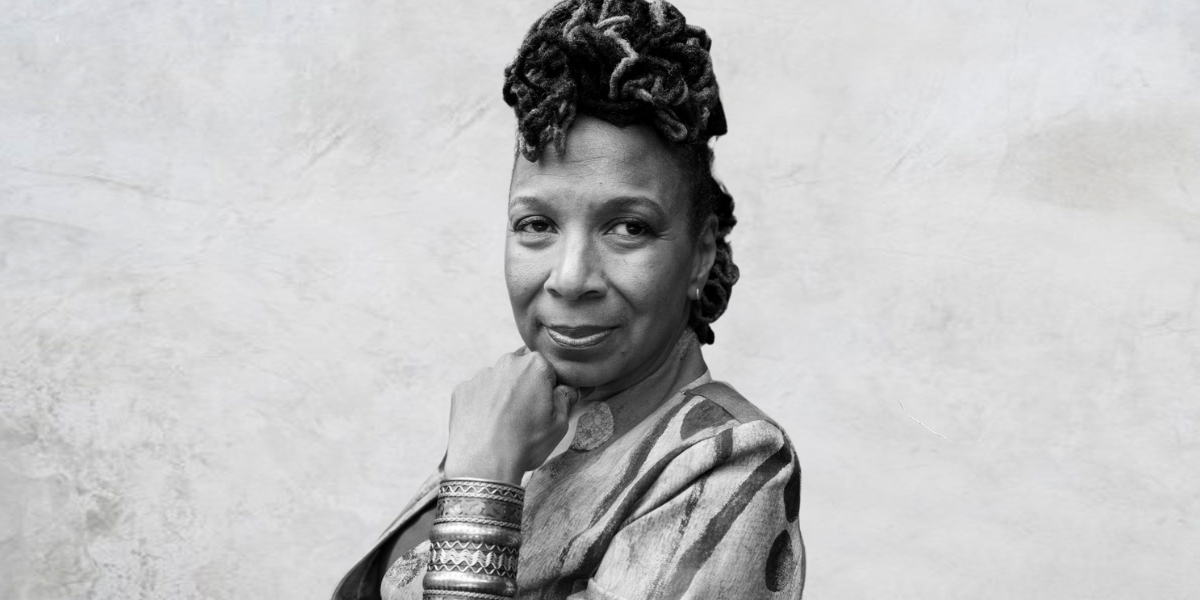
Kimberlé Crenshaw (1959-present) is one of the most influential feminist philosophers of our time. She is known for her advocacy for American civil rights, being a leading scholar of critical race theory, and pioneering what we now know as the third wave of feminism.
Crenshaw was born in Ohio, US in 1959. As a child, she grew up through the US civil rights and second wave feminist movements, both which occured throughout the 1960s and 70s. This time of revolutionary movements towards equality influenced how Crenshaw was raised.
“My mom was a little bit more radical and confrontational and my father was a little bit more Martin Luther King and ‘find common ground’. Which is probably why there are strains of both of those in my work.”
In 1984, Crenshaw graduated from Harvard Law School. At this time, there was only one woman and one Black professor of the 60 who were tenured. She is now a tenured professor at the University of California, Los Angeles (UCLA) and splits her time there with the Columbia School of Law in NYC.
Where do race and gender meet?
“I argue that Black women are sometimes excluded from feminist theory and antiracist policy discourse because both are predicated on a discrete set of experiences that often does not accurately reflect the interaction of race and gender.”
Crenshaw is most notable for coining the term “intersectionality,” which refers to the idea that when someone has multiple identities, it causes them to experience different and compounded forms of oppression. Rather than oppression being additive across multiple identities, intersectionality tells us that the experience of oppression will be multiplied. For example, a Black woman will experience discrimination because she is Black, because she is a woman, and also because she is a Black woman – which is a different kind of discrimination altogether.
“Because the intersectional experience is greater than the sum of racism and sexism, any analysis that does not take intersectionality into account cannot sufficiently address the particular manner in which Black women are subordinated.”
In the academic world, the term intersectionality debuted in Crenshaw’s 1989 paper Demarginalizing the Intersection of Race and Sex: A Black Feminist Critique of Antidiscrimination Doctrine, Feminist Theory and Antiracist Politics. Many scholars would say that the publishing of this paper catalysed the third wave of feminism, which is characterised by advocates demanding a more wholistic type of equality for people of all genders, races, socioeconomic backgrounds, abilities, ages, and in all countries.
Two years after the paper was published, Crenshaw assisted Professor Anita Hill’s legal team during Judge Clarence Thomas’s confirmation hearing to the US Supreme Court in October of 1991. In an interview with the Guardian, she reflects that the experience cemented the need for an intersectional theory of social justice. It was clear that “race was playing a role in making some women vulnerable to heightened patterns of sexual abuse [a]nd … anti-racism wasn’t very good at dealing with that issue.”
Intersectionality finally appeared in the Oxford English Dictionary in 2015, where it is defined as “the interconnected nature of social categorizations such as race, class, and gender, regarded as creating overlapping and interdependent systems of discrimination or disadvantage.”
A founder of critical race theory
“You can’t fix a problem you can’t name.”
Crenshaw has also spent a large part of her academic career developing and writing about what is now known as critical race theory. In its purest form, critical race theory is a 40-year-old academic framework that concerns itself with defining and understanding the plethora of ways that race impacts American institutions and systems, and how American institutions and culture uphold racist ideals. Crenshaw’s own definition, however, is more of a verb than a noun. For her, critical race theory is “a way of seeing, attending to, accounting for, tracing and analysing the ways that race is produced.”
One of the big cultural issues in the 21st century in America has been whether to teach critical race theory in public schools across the country. Parents and politicians across America have fought to remove what they think critical race theory is out of children’s education. They have argued that CRT is racist and teaches kids to “hate their own country.” Crenshaw now says she sees her work “as talking back against those who would normalise and neutralise intolerable conditions in our lives.”
Where to now?
Crenshaw continues to educate and inspire the next generation by teaching classes in Advanced Critical Race Theory, Civil Rights, Intersectional Perspectives on Race, Gender and the Criminalization of Women & Girls, and Race, Law and Representation at UCLA. At Columbia, she continues to work on the AAPF and through the forum, co-authored a paper in 2015 with Andrea Richie entitled Say Her Name: Resisting Police Brutality Against Black Women.
She regularly writes for a number of publications and provides commentary for the new outlets MSNBC and NPR. Crenshaw also hosts her own podcast Intersectionality Matters.
Ethics in your inbox.
Get the latest inspiration, intelligence, events & more.
By signing up you agree to our privacy policy
You might be interested in…
Opinion + Analysis
Health + Wellbeing, Politics + Human Rights, Relationships
There’s more than lives at stake in managing this pandemic
Big thinker
Politics + Human Rights
Big Thinker: Peter Singer
Opinion + Analysis
Society + Culture, Politics + Human Rights
‘The Zone of Interest’ and the lengths we’ll go to ignore evil
Explainer
Politics + Human Rights



